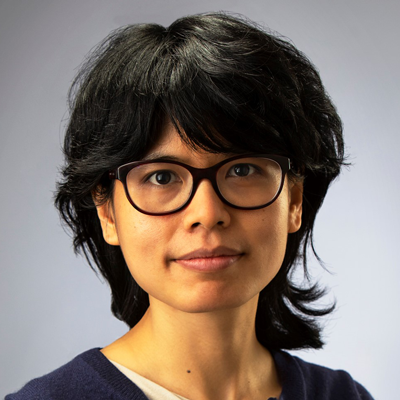 50,000 euros for pioneering research into cell communication
50,000 euros for pioneering research into cell communication
Professor Dr. Yimon Aye, École polytechnique fédérale de Lausanne (EPFL), Switzerland, has been awarded the Klaus Grohe Prize 2024. The 50,000 euro award is one of the most highly endowed prizes for medicinal chemistry in Europe. It is awarded by the Klaus Grohe Foundation, which is part of the German Chemical Society (GDCh). Aye receives the prize for her pioneering research into cell communication and enzyme manipulation, with which she has advanced both basic research and practical applications in medicine. The award will be presented on September 1 by GDCh President Professor Dr. Stefanie Dehnen at the International Symposium on Medicinal Chemistry (EFMC-ISMC 2024) in Rome, Italy.
Yimon Aye's research has significantly expanded our understanding of cellular processes, opening up new avenues for the development of more effective and targeted drugs. For example, she developed T-REX (Targetable Reactive Electrophiles and Oxidants), an innovative method for the targeted modification of proteins. T-REX can be used to observe specific chemical changes in proteins and investigate their effects on living cells. The method thus helps to understand how certain chemical substances, so-called electrophiles, act in the cell and can influence diseases.
Aye's research findings not only help to understand the causes of diseases and signaling pathways, but also to develop new and better drugs. For example, she discovered that the protein Akt3 can be inhibited by electrophiles. Inhibiting Akt3 was previously difficult, but important for the development of drugs, especially in cancer research. Aye developed a new active substance that specifically inhibits Akt3 and has already been successfully tested in mouse models.
Aye also investigated the multiple sclerosis drug Tecfidera in more detail. She found that Tecfidera marks the protein Keap1, which can lead to cell death in some immune cells, while in other cells it leads to survival-promoting signals. In future, these findings could help to improve the effectiveness of the drug and reduce side effects.
Yimon Aye, born 1980 in Yangon, Myanmar, studied chemistry at the University of Oxford, UK. After completing her doctorate at Harvard University, Cambridge, USA, she went to the Massachusetts Institute of Technology, Cambridge, USA, for a post-doctoral stay in 2009. From 2012, Aye taught and researched at Cornell University, Ithaca, USA, until she moved to the École polytechnique fédérale de Lausanne (EPFL), Switzerland, in 2018. There she heads the Laboratory of Electrophiles And Genome Operation (LEAGO) as an associate professor. Aye has already received numerous awards for her research, including an ERC Consolidator Grant (2022). She is a member of numerous advisory boards and committees and holds editorial positions in renowned journals. Among other things, Aye has been co-editor of ACS Chemical Biology since January 2022.
The Klaus Grohe Prize goes back to the chemist Professor Dr. Klaus Grohe (*1934), who developed important innovative drugs with great success during his professional career. In 2001, Klaus and Eva Grohe established the Klaus Grohe Foundation at the GDCh, which has been awarding the Klaus Grohe Prize for Medicinal Chemistry to young scientists since 2004. Since a reorganization in 2020, the prize has been endowed with 50,000 euros and is now awarded to internationally renowned researchers in the field of drug development whose work makes an important contribution to application.
With around 30,000 members, the German Chemical Society (GDCh) is one of the largest chemical societies in the world. The GDCh manages numerous dependent foundations on a fiduciary basis. The purpose of these foundations is to award prizes, sponsorship awards and scholarships. Foundation advisory boards decide on the awarding of prizes, sponsorship awards and scholarships.
Image material for download:
Contact:
Maren Mielck
Society of German Chemists
Public Relations
Phone +49 69 7917-327
E-mail:
www.gdch.de/presse
The original german Text from the GDCh Pressedienst was translated to English with DeepL Pro (deepl.com)
